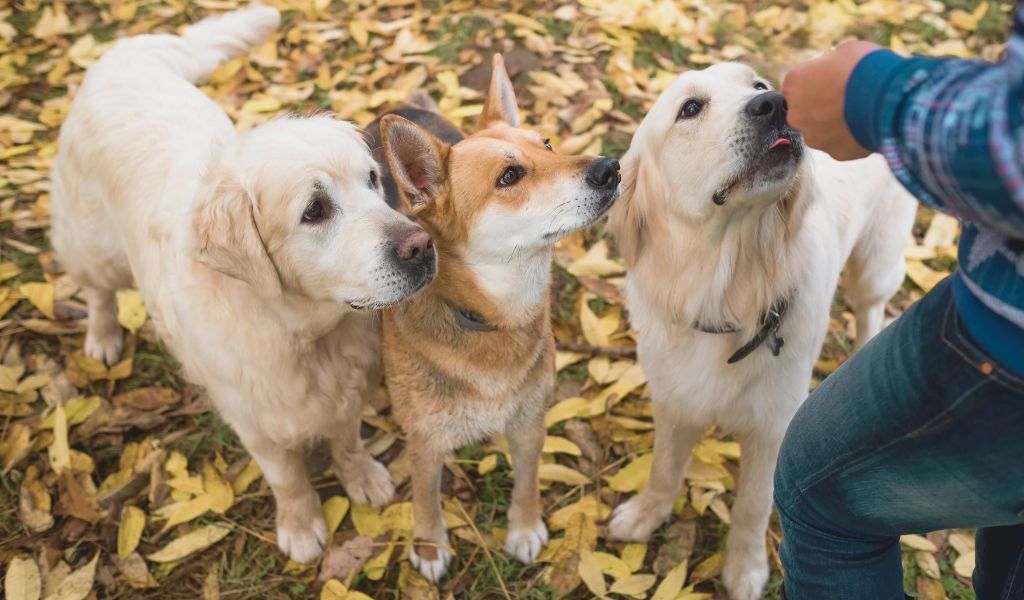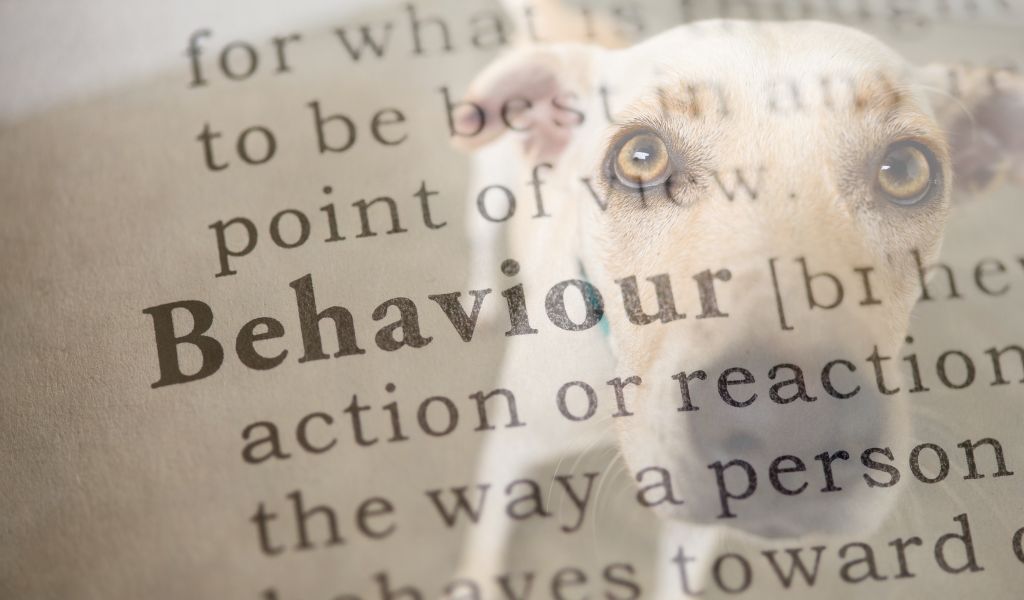Dogs are one of the most common pets in the world and for good reason.
They’re loyal, friendly, and make great companions. But what many people don’t know is that dogs are actually very complex creatures with a wide range of behaviours that can be puzzling to owners.
This blog post will explore some of the reasons why dogs do what they do and offer advice on how to deal with common issues.
Dogs are complex creatures with a view of the world that is different from humans and which is determined by their instincts and senses. Dogs use smell and hearing to interpret their environment and make sense of what’s going on around them. This is why dogs often seem to be responding to things that we can’t see or hear.
Dogs are social creatures
Dogs are highly social animals that need a lot of attention and interaction to stay happy and healthy.
Dogs are not solitary creatures, so if your dog is left alone for long periods of time, they may become anxious or even destructive.
It’s important to make sure your dog has plenty of playtime with you, other people, and other dogs.

Try to understand your dog
- Communication is Key:
- Dogs communicate primarily through body language.
- Tail wagging, ear positions, and body posture convey a lot about their mood and intentions.
- Vocalisations like barking, growling, or whining also carry specific meanings.
- Understanding Basic Needs:
- Dogs have fundamental needs such as food, water, shelter, exercise, and companionship.
- Neglecting these needs can lead to stress and behavioural issues.
- Social Creatures:
- Dogs are inherently social animals, descended from pack-living wolves.
- They thrive on interaction with humans and other dogs.
- Lack of socialisation can result in fearfulness or aggression.
- The World Through Their Senses:
- Dogs experience the world largely through their sense of smell.
- They also have different visual and auditory perceptions compared to humans.
- Be mindful of their sensitivity to smells, sounds, and sights.
- Importance of Routine:
- Dogs feel more secure with a predictable routine.
- Consistent feeding times, walks, and play sessions help them feel settled.
- Learning and Intelligence:
- Dogs learn through reinforcement and repetition.
- Positive reinforcement is more effective than punishment.
- Each dog has its own learning pace and intelligence level.
- Emotional Beings:
- Dogs experience a range of emotions, including joy, fear, anxiety, and excitement.
- Recognise and respect these emotions in your interactions with them.
- Stress Signals:
- Learn to recognise signs of stress, such as panting, yawning, lip licking, and avoiding eye contact.
- Respect their space and comfort levels.
- Health and Well-being:
- Regular health check-ups are important.
- A healthy dog is generally a happy dog, so pay attention to their diet and exercise needs.
- Play and Exploration:
- Play is crucial for a dog’s mental and physical health.
- Encourage play and exploration to keep them stimulated and content.
- Building Trust:
- Trust is the foundation of your relationship with your dog.
- Be consistent, gentle, and understanding to build a strong bond.
- Respect Their Individuality:
- Every dog has its own personality and preferences.
- Take time to understand what your dog enjoys and what they don’t.
Dogs need structure and care
Dogs rely on their owners who and will , in general, make all of the decisions that govern the dog’s day to day life – feeding times, walks, playtime, rest times etc etc.
It’s important to establish a routine and provide good standards of care for your dog in order to ensure that they are comfortable and happy in their home.

Dogs are intelligent creatures
Contrary to popular belief, dogs are incredibly clever animals that can learn new behaviours quickly and respond well to positive reinforcement.
Training your dog is key in teaching them how to behave and giving them an outlet for their mental energy.
Tasks such as agility courses, puzzle toys, and obedience classes can all help keep your pup’s mind active.
Do dogs misbehave?
No. Dogs do not misbehave. They experience the world differently to humans and often express this in ways that humans do not understand or appreciate.
Often a dog’s ‘misbehaviour’ is a failing of the human to take time to understand how the dog views and experiences his world.
Dogs need plenty of exercise
Exercise is essential for keeping dogs healthy and mentally stimulated.
Not only does it help keep their muscles strong and provide essential mental stimulation, but it can also help prevent destructive behaviour.
In addition to daily walks, playtime should be an important part of your dog’s routine.
Games such as fetch or tug-of-war can give your pup the physical activity they need while still providing an opportunity for fun and bonding with you.
Recommended Reading
Dogs sometimes act differently due to underlying health issues
If your dog is displaying any type of behavioural disorder then there may be a medical reason behind it.
Some common illnesses that can cause behavioural changes in dogs include anxiety, depression, arthritis, and diabetes.
It’s important to take your pup to the vet if you notice any significant changes in their behaviour in order to rule out any underlying medical conditions.
Dogs need stability
Dogs are creatures of habit and need a regular schedule to keep them happy.
Most dogs dislike changes and it’s important for you to try and maintain normality for your dog to ensure that they feel safe and secure.
Try to walk you dog at the same time daily, feed him at the same intervals and, if there are any changes to your dog’s life, for example you move home or a family member moves out, then remember that your dog won’t understand and could become anxious or stressed.

Dogs are driven by instincts
Like any animal ( even humans ) dogs are driven by their instincts and senses and these are often very different and more effective than those of their owners.
When you see your dog attacking the vacuum cleaner, remember that to him it may look like a strange intruder and he is trying to protect you.
Similarly, when dogs bark at the postman or dig holes in the garden, it’s important to remember that these are natural instincts and not necessarily ‘bad behaviour’.
His sense of smell is infinitely more powerful than yours so when he stops to sniff or does something else that seems strange, there is a good chance he is just trying to make sense of his environment.
By understanding these instincts, owners can work with them and help their dog to channel energy in more productive ways rather than letting it lead to destructive behaviours.
Different breeds have their own traits
Your dog will display behaviour that is typical to his breed.
For example, a spaniel will be driven to hunt and even a non working dog will spend a great deal of his time whizzing around with his nose on the floor, or crashing through bushes and similar.
A sheepdog will enjoy trying to herd anything and everything that he can find to satisfy his in built desire to do the job he was bred for.
On the other hand a terrier will happily dig the garden up in his search for mice, rats and other small animals whereas a dog from the guarding breeds will be more likely to be aggressive.
By understanding the breed traits of your dog you can develop insight into how to best manage their behaviour.

Some breeds are more adaptable than others
You will also find that certain breeds are better at adapting to different environments and lifestyles than others, so it’s important to do some research before deciding on a particular breed.
Dogs have personalities
Finally, it’s important to remember that each dog has their own personality and temperament.
Some are more active, some more laidback; some respond better to positive reinforcement while others may need a firmer hand.
It’s important to observe your dog’s individual behaviour and work with their personality rather than trying to force them into a certain mould.
By doing this you will be able to achieve the best results in terms of obedience and training.
These are just a few tips for understanding your dog’s behaviour and helping them adjust to life as part of your family.
Remember that patience is key – it takes time and dedication but with love, loyalty and understanding you can develop an amazing bond with your dog.
It’s important to remember that every breed of dog has different needs and personalities, so it’s important to familiarise yourself with your particular type of canine in order to provide the best care possible.
A content and happy dog is a joy to be around – so take the time to understand them and you will be rewarded with a wonderful companion for life.




